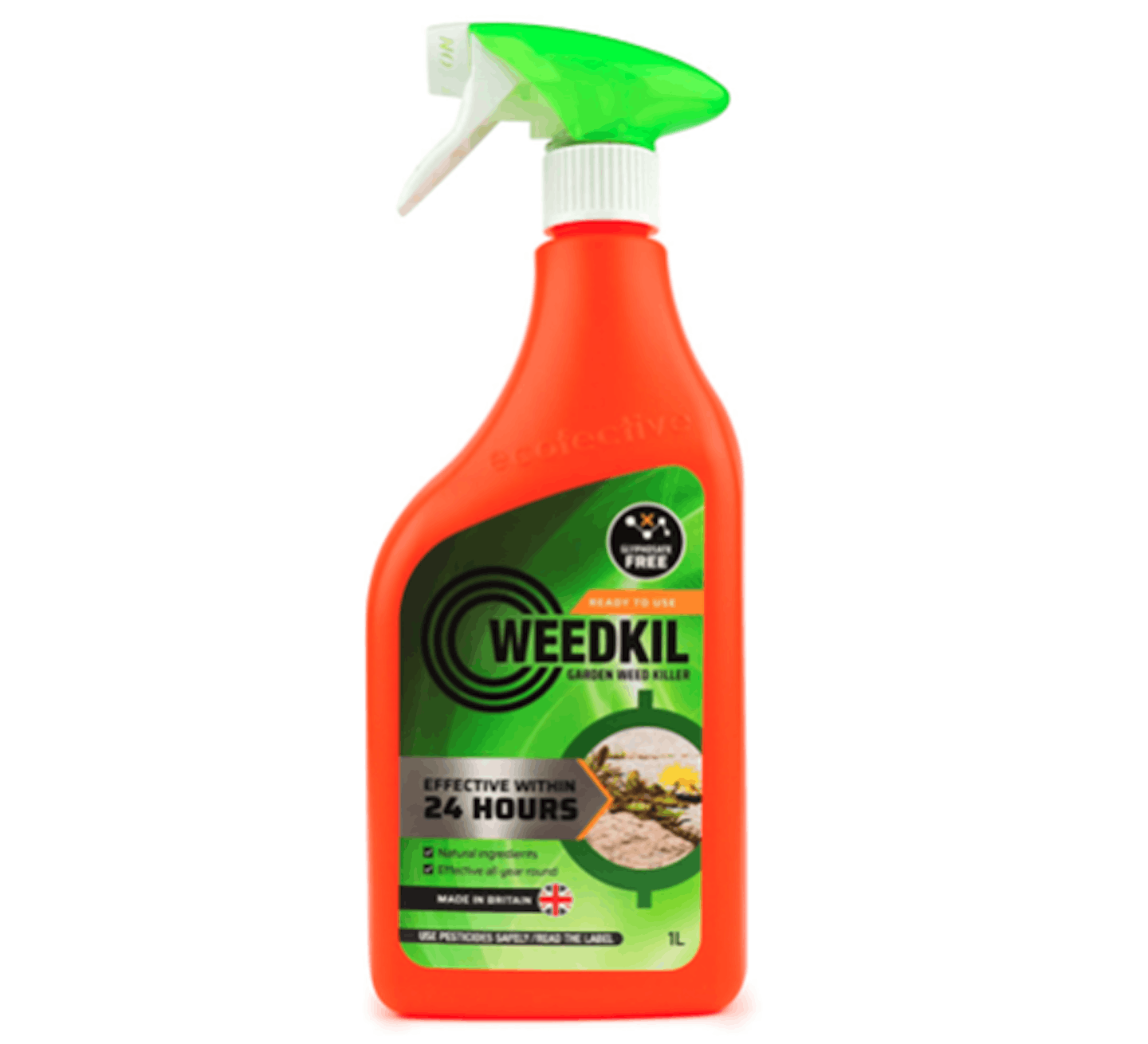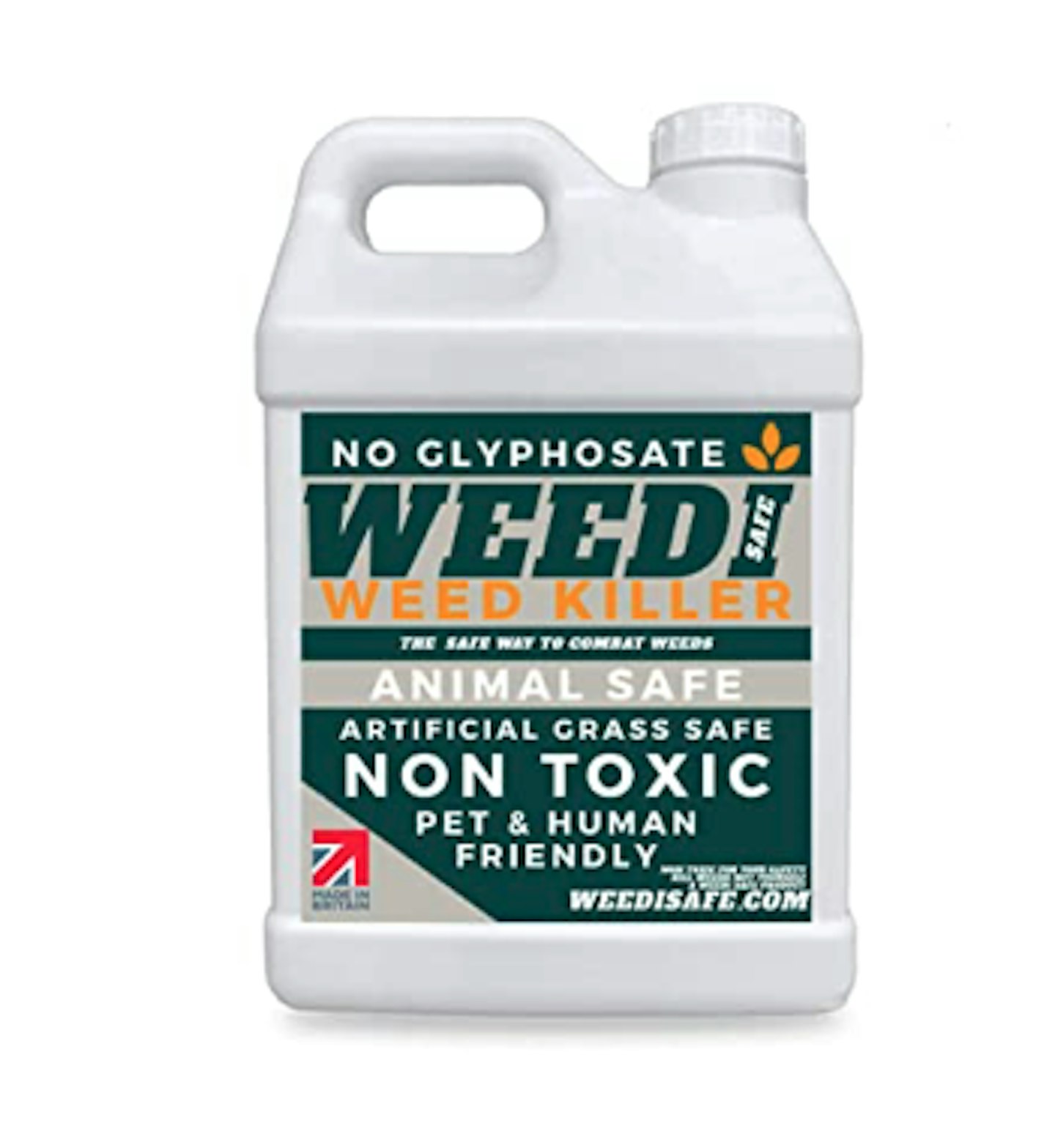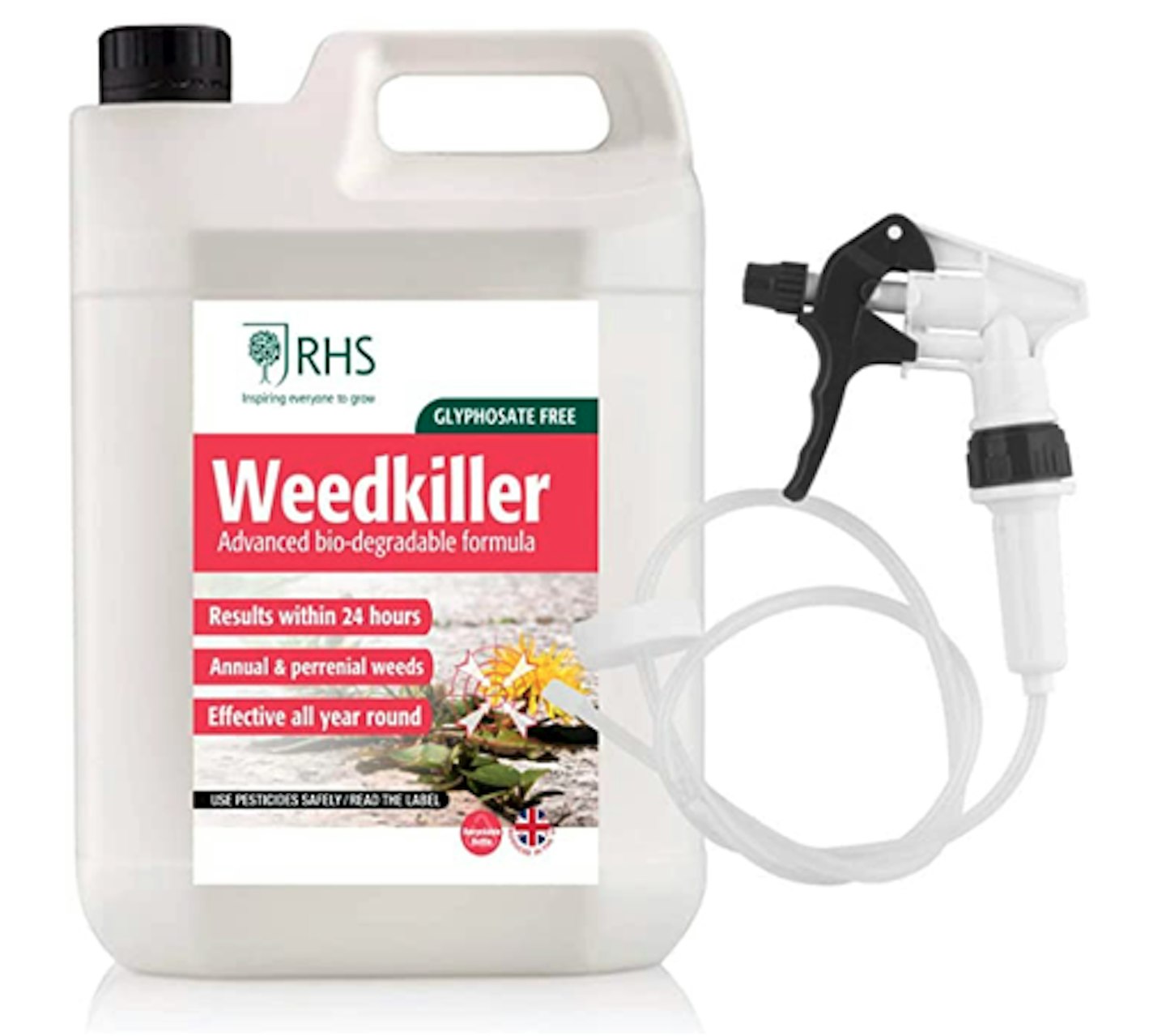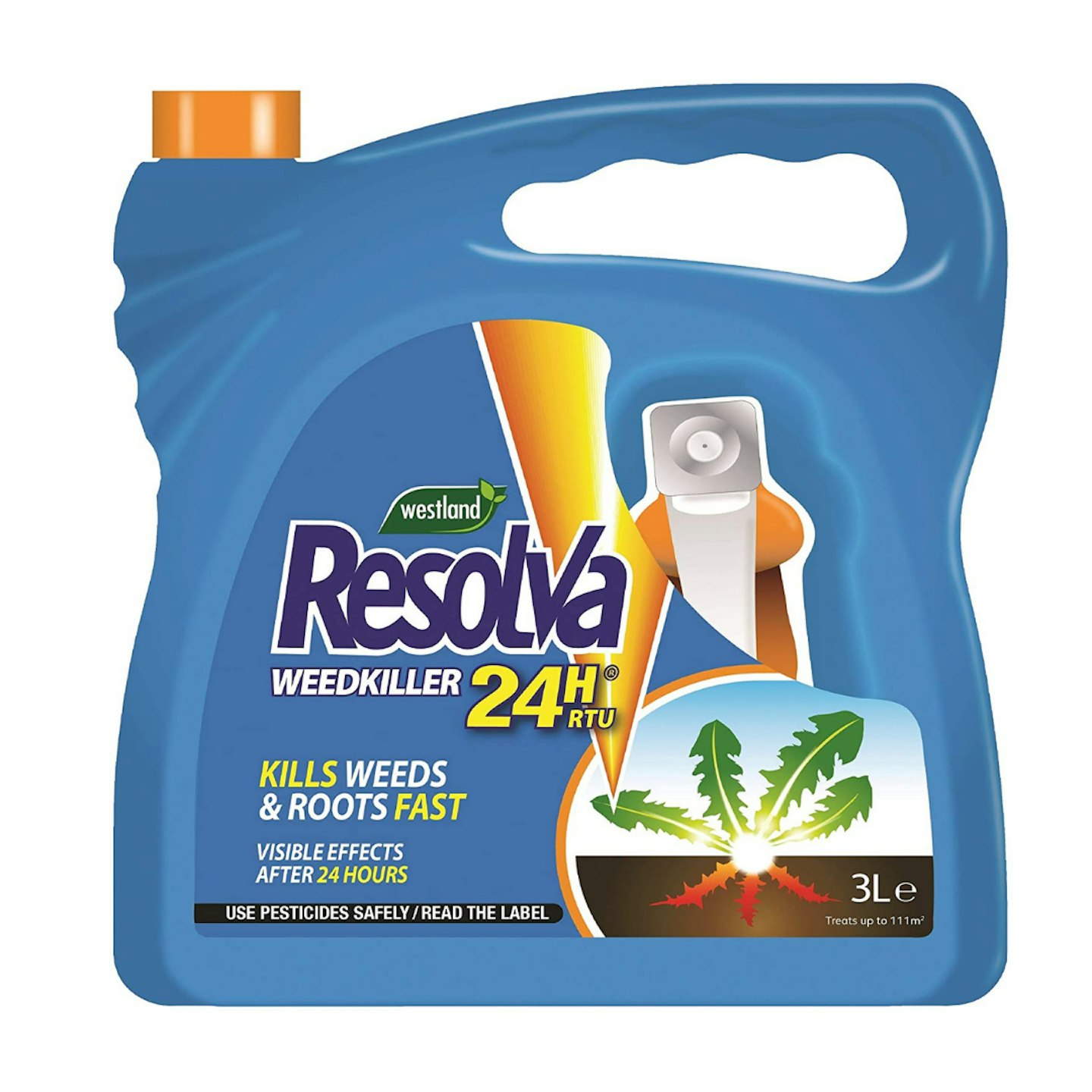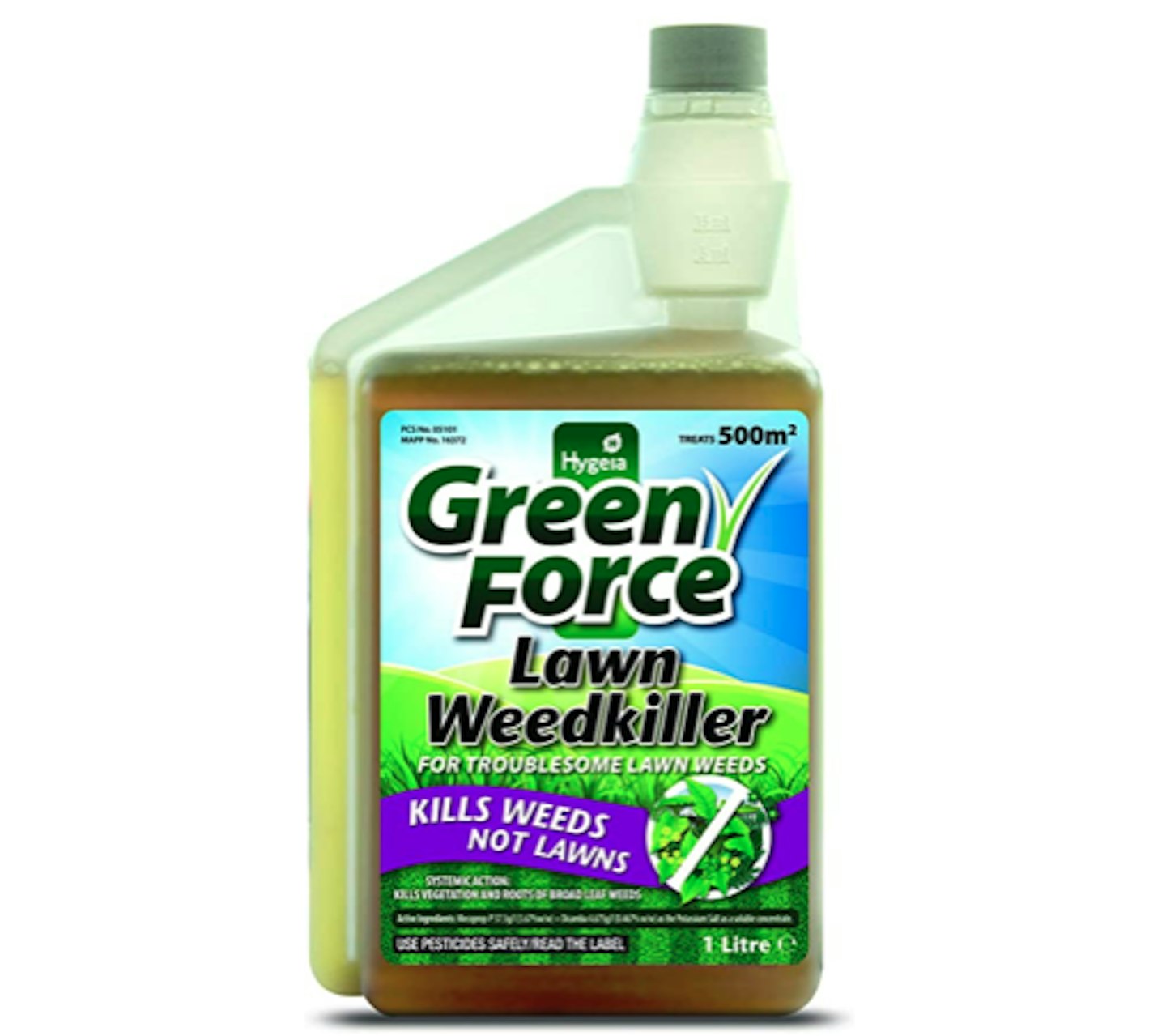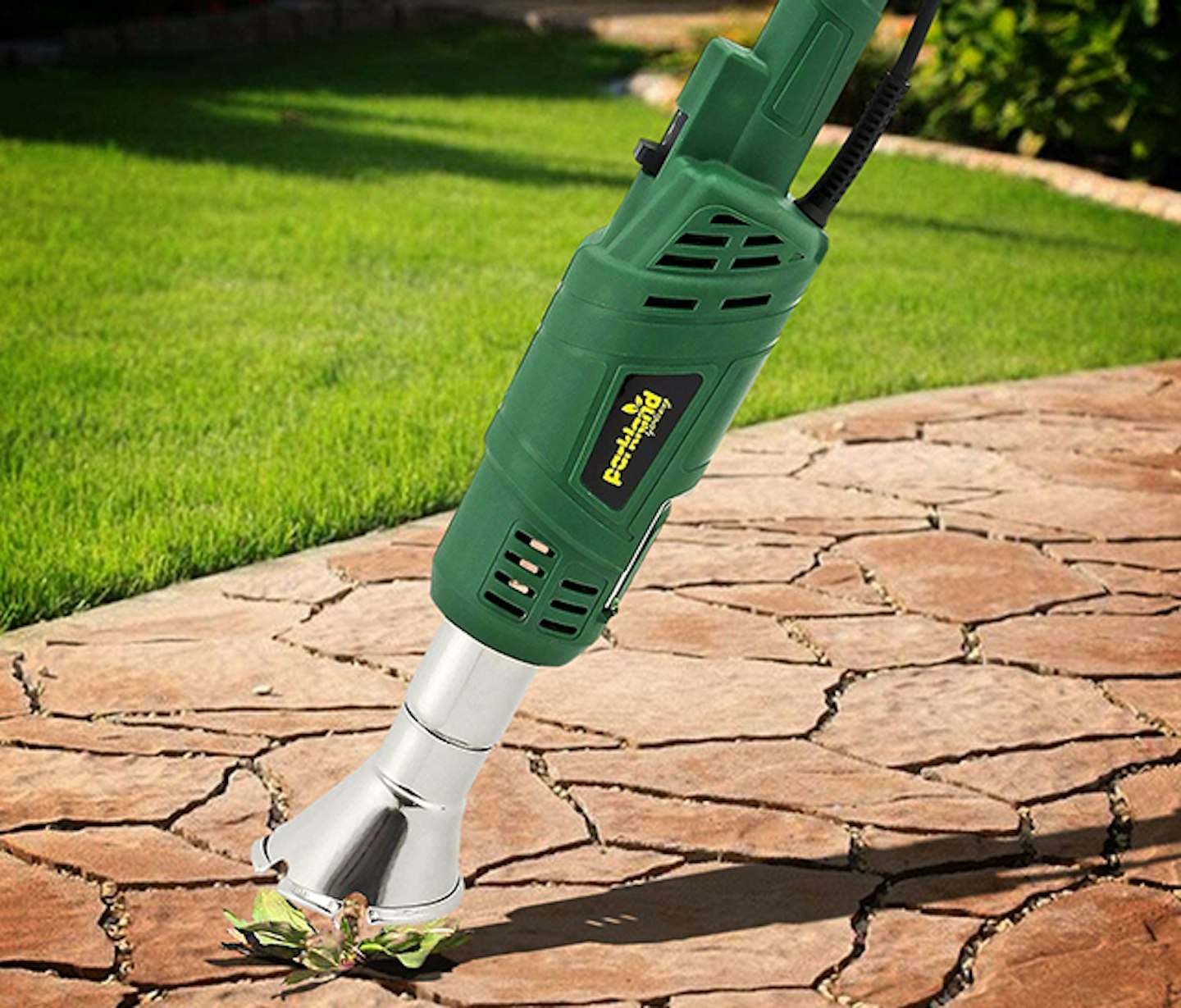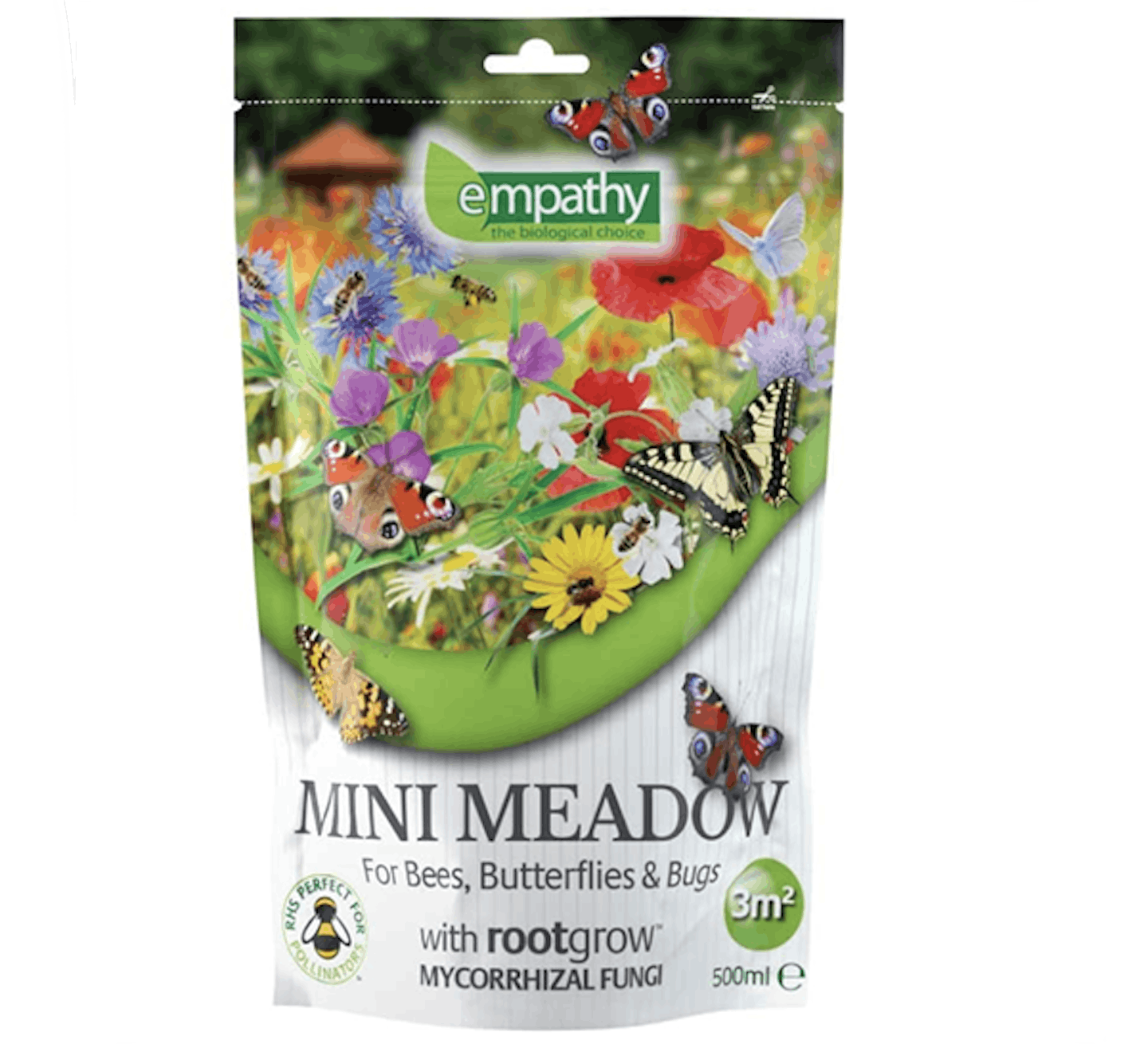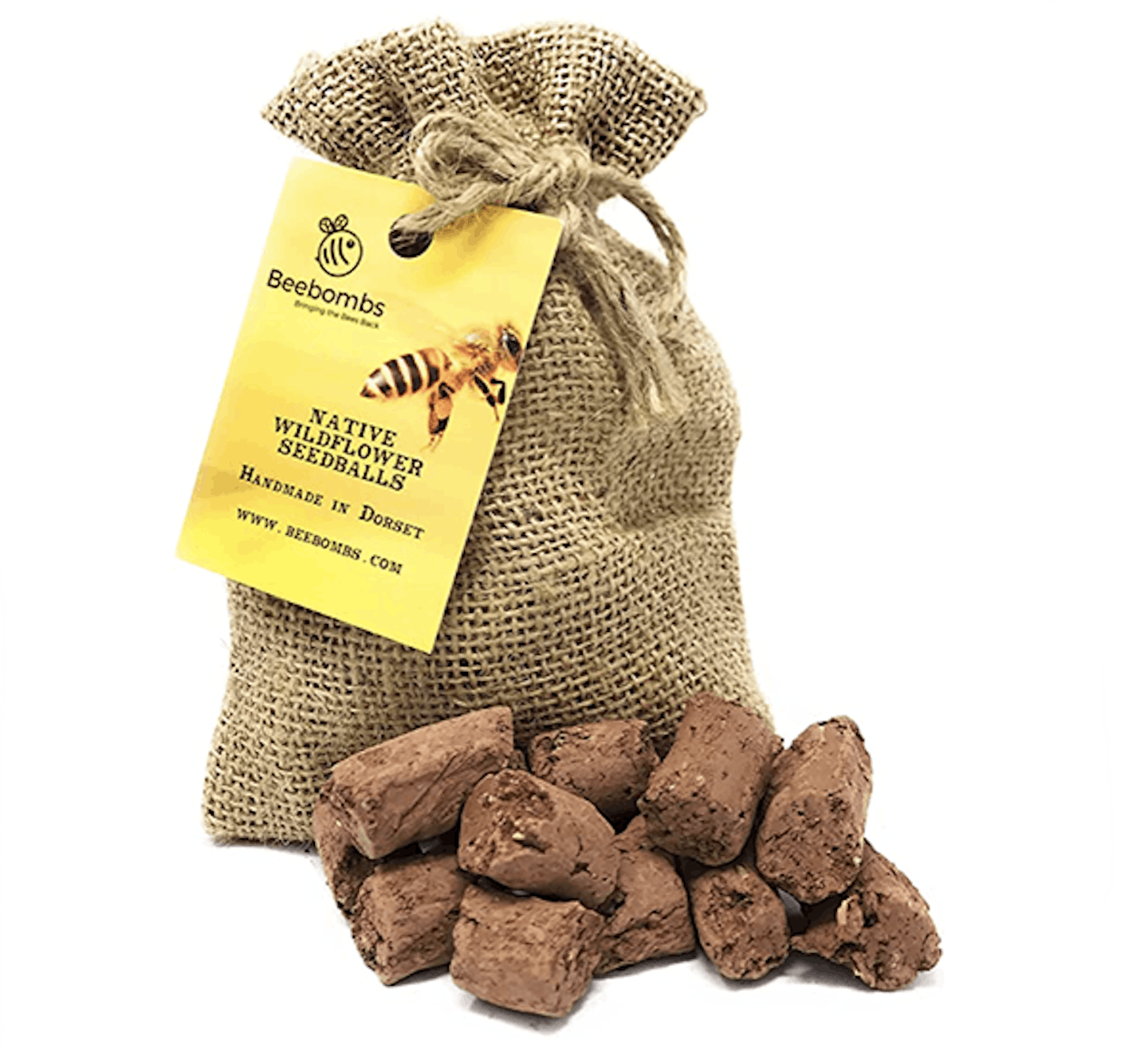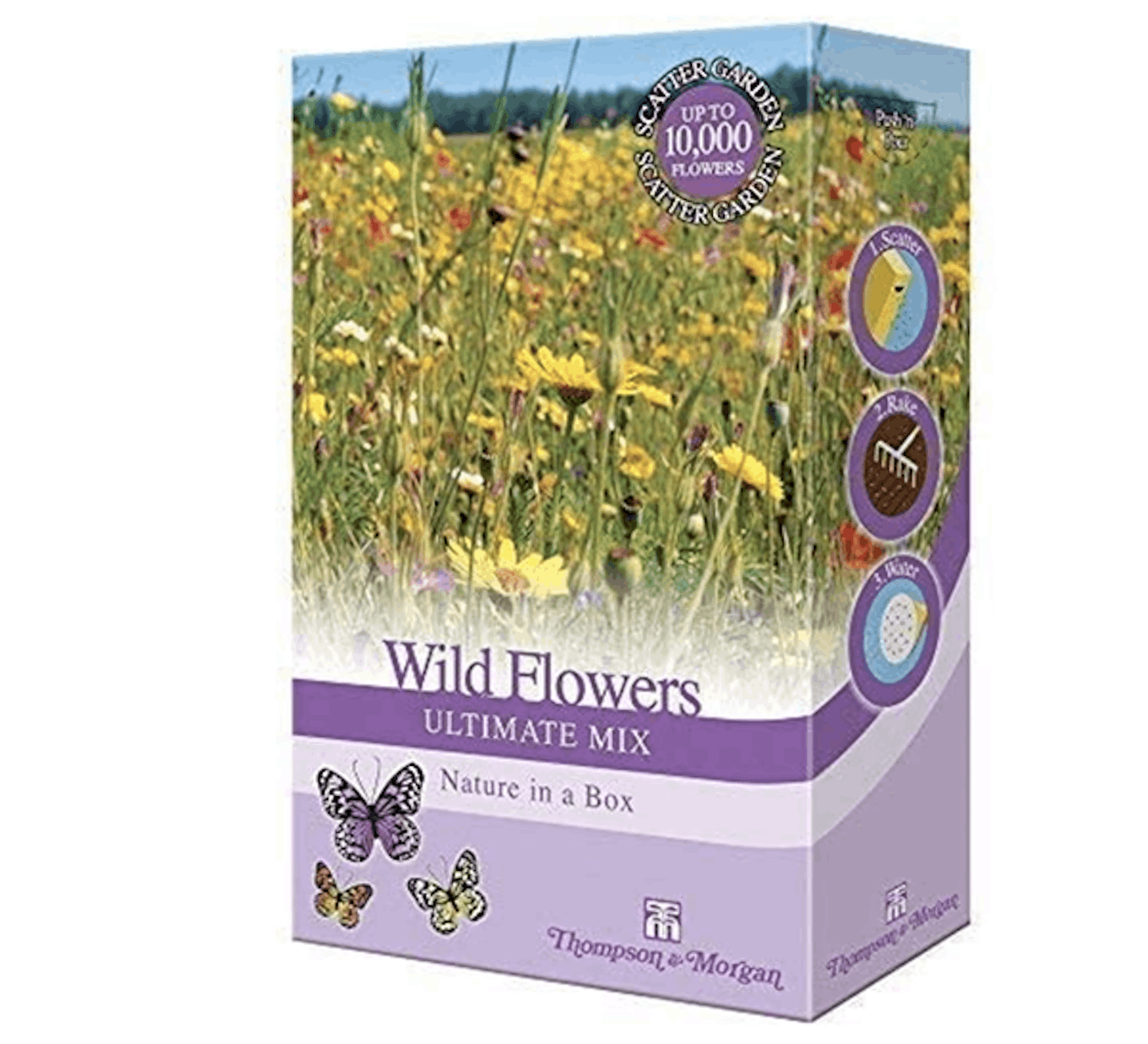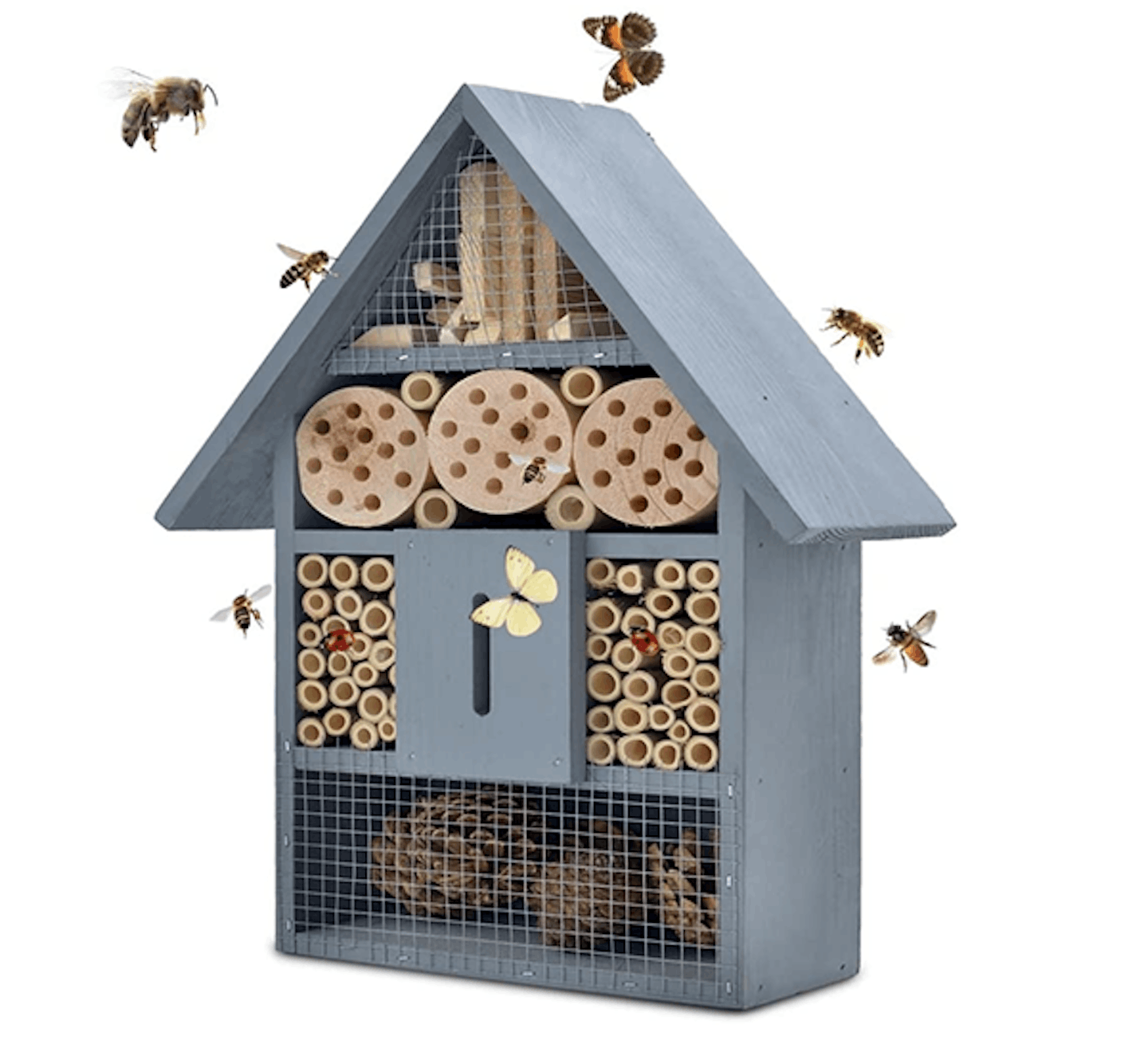We all want to keep our gardens looking their best. But many weed killers do a lot more harm than good. So, we've found the best weed killers and natural solutions on the market for a beautiful garden without damaging the environment.
When deciding what weed killer to buy, you will naturally want one that is tough on weeds but gentle on your lawn. Choosing and then going on to use the wrong type of weed killer in your garden, allotment space or affected area can actually cause serious harm, which is why our guide is here to help.
How does weed killer work?
Weed killers work by damaging the target weed's leaves so that they wither and die. In weed killer formula this is triggered by a chemical reaction.
There are typically two ways in which most weed killers work:
Contact weed killers: These common weed killers kill only the plants with which it comes into contact with. Although they are certainly fast, they commonly only destroy the part of the plant above the soil and do not touch the entire root system.
Systemic weed killers: These strong weed killers work by being absorbed by the foliage and travelling through the weed to the root system. They stop the weed from growing as well as preventing its ability to produce food from sunlight.
Of course, no one wants a completely overgrown garden. So, to help the environment rather than hinder it, you want a good quality, eco-friendly weed killer. One that you know will work, but won't be harmful to wildlife, your pets or children.
The best weed killers that won't hurt the environment
This is our pick of the best products on the market to reduce the number of weeds in your garden without harming the environment.
Just so you know, whilst we may receive a commission or other compensation from the links on this page, we never allow this to influence product selections. Why trust us?
The best natural weed killer
Description
Unlike the conventional chemical-based killers, this weed killer is made using natural ingredients, which means it poses no harm to children, pets and wildlife once dried.
Pros: It can be used on gardens, patios, paths, gravel and in vegetable patches and flower beds. Best results are achieved against moss and small weeds less than 10cm high. It works in low temperatures and can be used all year round. Ideally spray in spring and repeat as necessary over the growing season.
Cons: Works best when applied on a dry day when rain is not expected – so not great for British winter time - the solution dries in 15-20 mins.
Review by tester, Mich: “Sprayed on a patch of well established (20years +) ivy. Fours hours later the patch of ivy had shrivelled up. The next morning the patch was dead. I wasn't sure how well it would work on ivy but I'm seriously impressed with this product. Also, no nasty chemical smell."
Size: 1 Litre
Coverage: 35sq metre
Strongest weed killer
Description
This pet-friendly non-toxic weed killer is made with naturally occurring acids found in a variety of plants and fruits while being a strong weed killer to combat weeds safely. turning black within an hour.
Pros: It is fast and effective, many reviews stated they saw results very quickly.
Cons: It doesn't come in a ready to use dispenser.
One review said: "Works fast, I could see the weeds The only downside is it’s time consuming if using it to kill weeds in the lawn as you have ensure it only goes on the weeds otherwise it kills the grass."
Size: 5 Litres
Most trusted weed killer
Description
If there's a name you can trust in the gardening world, it's the RHS. This bigger bottle is perfect for weed control in a large area. Weeds or moss are controlled by covering their foliage completely and evenly with spray. Soon after spraying, the foliage of treated moss or weeds begins to wither and die. Plant roots are not killed and new foliage may grow, particularly from the roots of perennial weeds. Annual weeds with small roots and moss may die back completely but re-treatment will usually be necessary, especially to keep down perennial weeds. Best results are achieved against moss and tender, small weeds less than 10 cm high. Ideally spray in spring and repeat as necessary over the growing season, up to a maximum of 6 applications per year. It is good practice to wear gloves when using this product although this is not a requirement.
Pros: This formula is effective within 24 hours, and comes with a long hose trigger for easy application. The ready-to-use formulation containing the active ingredient 60g/l acetic acid controls annual and perennial weeds.
Cons: A minimum interval of 7 days must be observed between applications. When To Use: RHS Weed killer is a non-selective weed and moss killer active against most soft plant tissue with which it comes in contact.
Tester review: "I used this on a large gravel drive with lots of grass and other invasive weeds. The next morning they were on their way! I was amazed! I have never seen results like this with any weed killer! The spray was easy to use, a little leaky, after all it's only a small plastic thing, but it did the job. Bit smelly I must admit, didn't want to breathe it in. The spray was good, went a long way, but with not much drift, or spread. So altogether a miracle!"
Size: 5L
Coverage: 175sq metre
Best for killing deep-rooted weeds
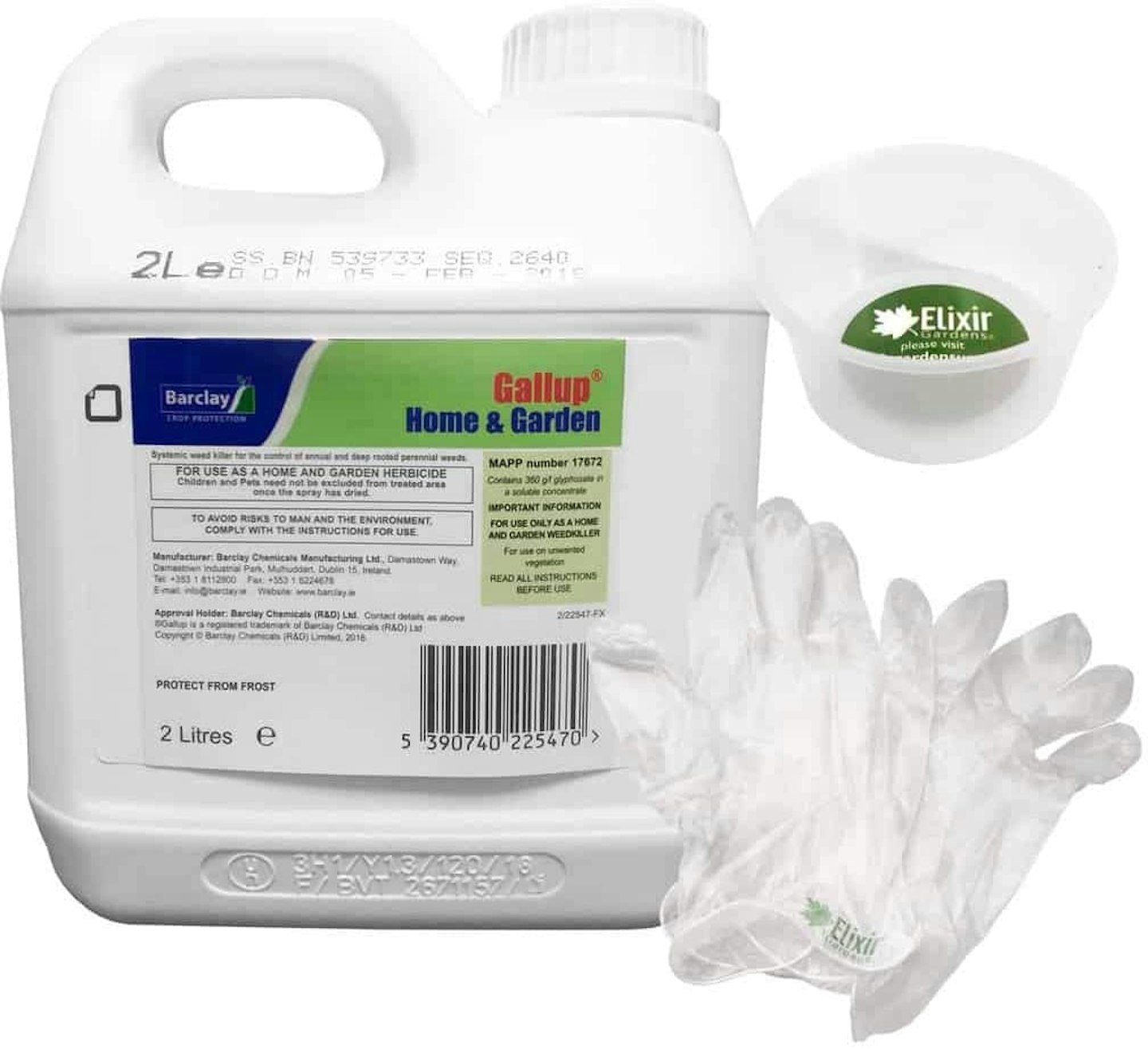
Description
This domestic weed killer contains 360 g/l glyphosate for effective control of annual and deep-rooted perennial garden weeds, including grasses, docks, nettles, willowherb, dandelion, and bindweed.
Pros: Great value for money. It kills most weeds in just one application so there's no need to re-apply. Leaves no lasting residues. Comes with a measuring cup and gloves.
Cons: Not an instant fix. Protective glasses needed. Seems to be mixed reviews online. There are a lot of people that rave about this product but also some that insist it don't work.
Review: "I have been using this for about two months now. Great product. After two weeks just about all dead. Mixed as per instructions and sprayed with a ‘backpack’ type dispenser. Other reviews mention about being careful near other plants, I would definitely agree. After spraying weeds near a privet hedge (in the wind) bits of the privet are dead too. But that’s my fault and not the product's. Would recommend, mix as per instructions, be patient, don’t spray near anything you want to keep, especially when it’s windy!"
Size: 2L
Coverage: 3332sq meter
Quickest week killer
Description
If you want to see results quickly, this is the weed killer for you, beginning work after just 24 hours. It kills both the visible weed and its root system of annual and deep-rooted perennial garden weeds.
Cons: Contains Glyphosate so not eco-friendly. Some reviewers disagree with the 24 hour claim.
One review said: "Two doses and four days later, the driveway is clear. But 24h after the 1st application, it didn't seem to make a difference."
Size: 3 Litres
Coverage: 105sq metre
Best weed killer for lawns
Description
This selective weed killer is specifically for lawns, and controls all broadleaf weeds, without killing grasses, to produce a healthy lawn. The formula is glyphosate free, but still works to kill the weed from leaves to root. Apply for effective control of dandelions, daisies, nettles, soft thistle, dock clover and buttercups.
Pros: You can apply using a sprayer or watering can.
Cons: Some reviews stated it did damage their grass.
Review: "Bought on recommendation from a groundskeeper. Works just as described, patience is required thought as it doesn't work overnight. Slowly killed all the weeds including daisies, buttercups, clover and broadleaf weeds (the latter took a lot longer)." Tester - A. Patel.
Size: 1 Litres
Coverage: 500m2
Best weed killer for patios and driveways
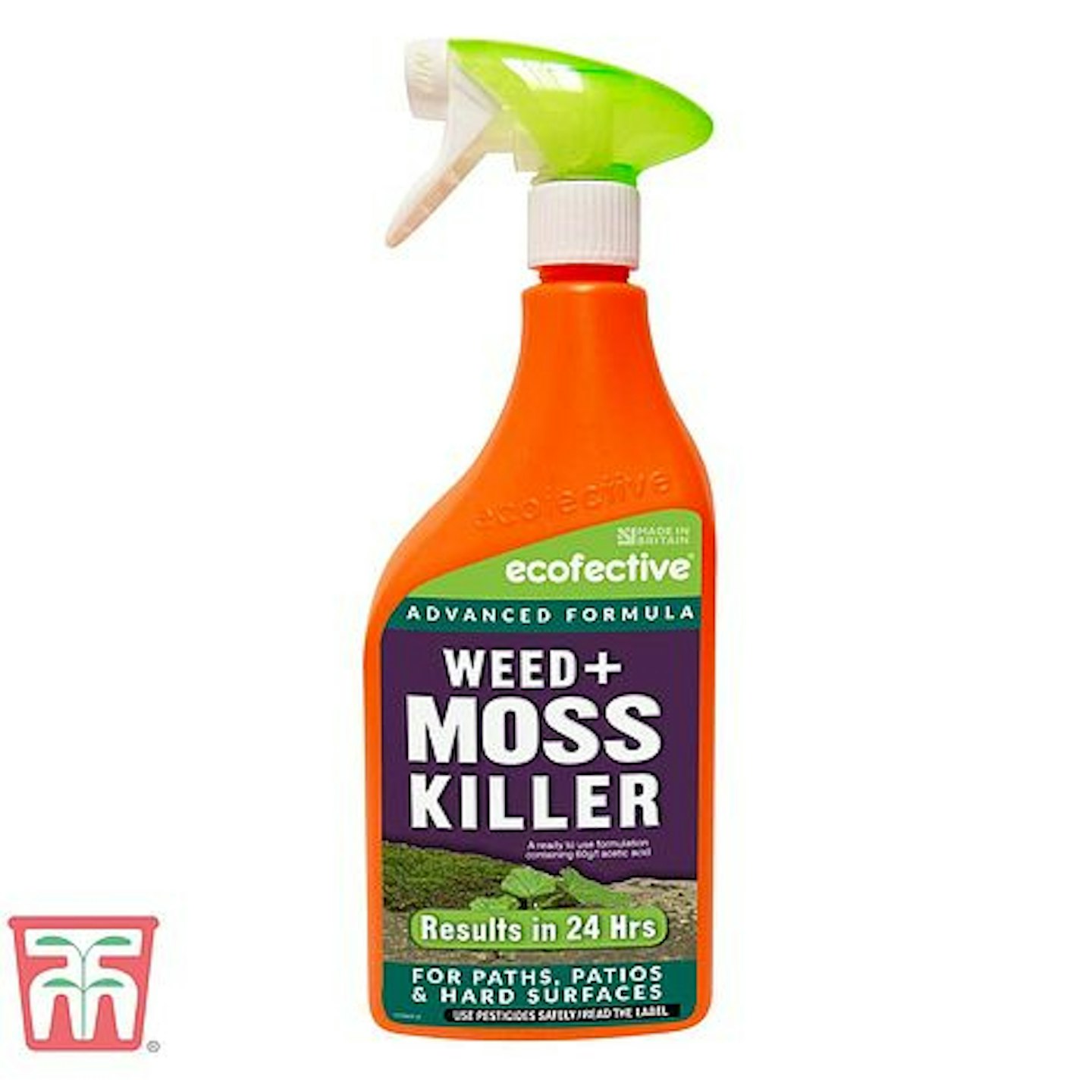
www.thompson-morgan.com
Description
Ecofective Weed and Moss Killer is an effective, dual-action treatment which controls weeds and moss on hard surfaces such as paths and patios. The formula contains acetic acid and a patented co-formulation of natural ingredients to effectively burn unwanted weeds and moss. How to use: Simply spray on to see visible results after just one hour.
Pros: The product dries quickly meaning the treated area is still safe to be used by children, pets and wildlife once dried. The product is not temperature reliant, so it can be used all year round when no frost is present, making it the essential gardening must-have.
Cons: The trigger is a bit cumbersome, but there is also a 1L version available which is in a handy ready to spray bottle. One review said: "This is really good stuff, I used it this morning and a few hours later the weeds were dying. It's quick working."
Size: 4 Litres
Best electric weed killer
Description
A completely chemical-free option that's a lot easier than using a hoe or grubbing out weeds by hand, is an electric weed killer. This weed burner eliminates weeds and other unwanted plantations with a quick and eco-friendly method. No more spraying toxic chemicals that harm the rest of your garden. With this handy weed burner, the weeds' internal cells are destroyed by the intensive heat, causing them to wither and die within 24-48 hours, leaving your garden safe for kids and pets immediately after use. All you need to do is plug it in and off you go. It's also a great tool for de-icing pathways in winter, and has an attachment for lighting BBQs and fire pits too.
Advantages of using 'friendlier' weed killers
Whilst we’re used to perfectly manicured gardens being the norm, killing weeds actually reduces the biodiversity of our gardens, so it's important that we consider what we kill and how. Many local councils have received backlash for the weed killers they use, as they contain ingredients such as glyphosate, which is harmful to bees, butterflies and other pollinators.
According to the latest WWF report “[40 per cent of insect species are at risk of extinction](https://www.wwf.org.uk/sites/default/files/2019-05/EofE%20bee%20report%202019%20FINAL_17MAY2019.pdf2019.pdf ) in the next few decades”.
There's no need to let your garden go completely feral, but we can be more environmentally friendly in the products we choose to control certain weeds, plus consider ways we can promote biodiversity with the flowers we plant, and whether we leave certain patches of our garden to get a bit wilder.
While weeding is not the most fun or most glamorous job, Karen Murphy from Garden News says, "Good weed management lasts all year.
"There are certain weeds that are a nuisance, such as bindweed, horsetail and ground elder (more in allotments and wild gardens) and they need pulling up regularly to remove as much root as possible."
But before you go gung-ho on your uninvited garden guests, consider whether they might add a little something to your garden.
Beneficial weeds
You may be thinking, 'why on earth would I want to keep any weeds in my garden?' But believe it or not, weeds do have their uses. In addition to increasing biodiversity, weeds are also great for the soil – they accumulate nutrients, add channels in the soil and also prevent erosion and run-off after rain. In other words, they make soil healthier.
While this may not convince you to give up weeding altogether, rather than focusing on killing the weeds at the root, cutting the leaves and leaving the root will benefit your soil hugely. You can also tuck the cut leaves under the top layer of mulch or compost on your flower bed - as they die back, they'll act as natural (and free) compost.
Beneficial weeds include White clover, Dandelions, Chickweed, Broadleaf plantain and Lamb's quarters.
White clover in particular is a sign of low nitrogen levels in the soil, and growing it will correct this imbalance. If you see it in your veg patch, in particular, let it be! Just don't let it take over your vegetable plants – make sure their roots still have space to grow.
Weed killer FAQs
Does weed killer kill grass?
There are lots of different types of weed killers depending on the type of weed and where you want to focus on in your garden, be it your lawn, patio or flowerbeds. Weed killers for lawns are designed to leave your lawn be, and only target unwanted plants such as moss.
When to apply weed killer to lawn
Over winter, the lawn does not grow much, but once the weather warms up in early spring, you can start mowing, and this is also a good time to overseed and weed any areas damaged over winter.
Keep up with applying weed killer to your lawn through spring and summer, whenever you feel your grass needs the extra help with unwanted plants. It's also important to weed your lawn in the autumn, to keep it in good condition over winter.
Does weed killer kill moss?
Moss is a tricky plant to kill, so a lot of weed killers will struggle to get rid of moss permanently. So, look for a weed killer that specifically targets moss.
How to use weed killer
Spray directly onto the plants you wish to remove, at the distance recommended on the product's packaging (normally around 15-20cm from the weed).
Leave to dry before allowing pets or children into the garden.
How long does weed killer take to dry?
How long it takes weed killer to dry depends on the type of weed killer. If you have pets or children, it's even more of an incentive to look for an eco-friendly product as these will typically have pet-safe ingredients.
For best results, save spraying your weeds for a warm dry day - this will help the weed killer to dry quicker.
How long should you keep dogs away from grass after weed killer?
It is difficult to give an exact time estimate to keep your dog off the grass since there are so many different brands out there, all with differing advice so we would suggest checking the guidelines of the brand you are using. The size of your garden and the temperature can also play an important role here too.
Generally, we would recommend keeping your dog off the grass for at least 30 hours.
Can weed killer kill dogs?
Technically, yes but this is very uncommon and would only occur if your dog were to ingest a large amount of it. Weed killer can lead to other health problems for your pooch though so we would recommend opting for pet-friendly weed killers to be on the safe side.
As a rule, avoid weed killers with Glyphosate, opting instead for those listing natural and organic ingredients.
Getting rid of weeds the eco-friendly way
So, if we want a certain area tidy, what are the most eco friendly ways of keeping it that way?
Liz Potter, editor of Garden Answers, says, "We like to be organic as much as possible on Garden Answers – if you think about it, a weed is often just a misunderstood wildflower growing in the wrong place, and even dandelions can be an important source of nectar for early bees on the wing.
“Having said that, there are lots of tools to help you grab them out by hand, without recourse to chemical weed killers – including those electronic gadgets that use a flame to scorch them to a cinder.
“Another very easy tool to use is a long-handled hoe, which might seem a bit old fashioned but really they’re so easy to use, just scratching over the soil surface around plants to loosen the roots of small weeds. On a dry, breezy day you can just leave the weed on the soil surface to wilt and die."
Best homemade weed killers to get rid of weeds naturally
There are many ways to get rid of weeds without chemicals, by using common household items and sometimes a bit of elbow grease.
Boiling water
This works best on young weeds. Take a kettle of boiling water and pour it on small weeds that are growing through cracks in the patio or path. This method might take several attempts to kill off any weeds, but it will eventually work. It's also good for the rest of your garden and soil as it won't cause any damage to it.
Rock salt
Sprinkle some rock salt around the edge of your lawn to kill any weeds around the perimeter of your garden. This works great for those hard to reach areas your lawnmower can't cut. The salt works to dehydrate the plant leaves so that the roots can't take up any more moisture into the plant and eventually, the plant dies off.
A trowel
There's sometimes nothing better for attacking weeds than going back to basics with a trowel and some hard-wearing gardening gloves and attacking weeds at the root.
Vinegar
It's best to use the horticultural kind for a fast-acting natural weed killer. Just use with caution as vinegar will kill anything that is green!
Make your own eco-friendly weed killer formula
There are a number of home solutions you can create, commonly using vinegar, including vinegar and lemon juice, vinegar and salt and vinegar and soap.
These DIY weed killer solutions are also great value for money, as you can make them for a fraction of the cost of buying a ready-made weed killer. The household product ingredients are ones you may have in your kitchen cupboards already.
There are lots of recipes you can use to create your own...
Promoting biodiversity in your garden
If cutting back weeds and tucking cut leaves away seems a bit fiddly to you, how about promoting biodiversity in your garden by having an area dedicated to a meadow.
Garden meadows are very easy to create – simply decide where you'd like it to be, whether that be a patch of lawn, a raised bed, or even a pot. Then sow your wildflower seeds. Depending on the soil in your area, you'll either need to sow these in September or March. Check the packaging to be sure of the best results. I also recommend purchasing a seed mix that includes seeds, feed and coir.
You can also buy ready-to-roll meadow flower turf - just like you would for your lawn.
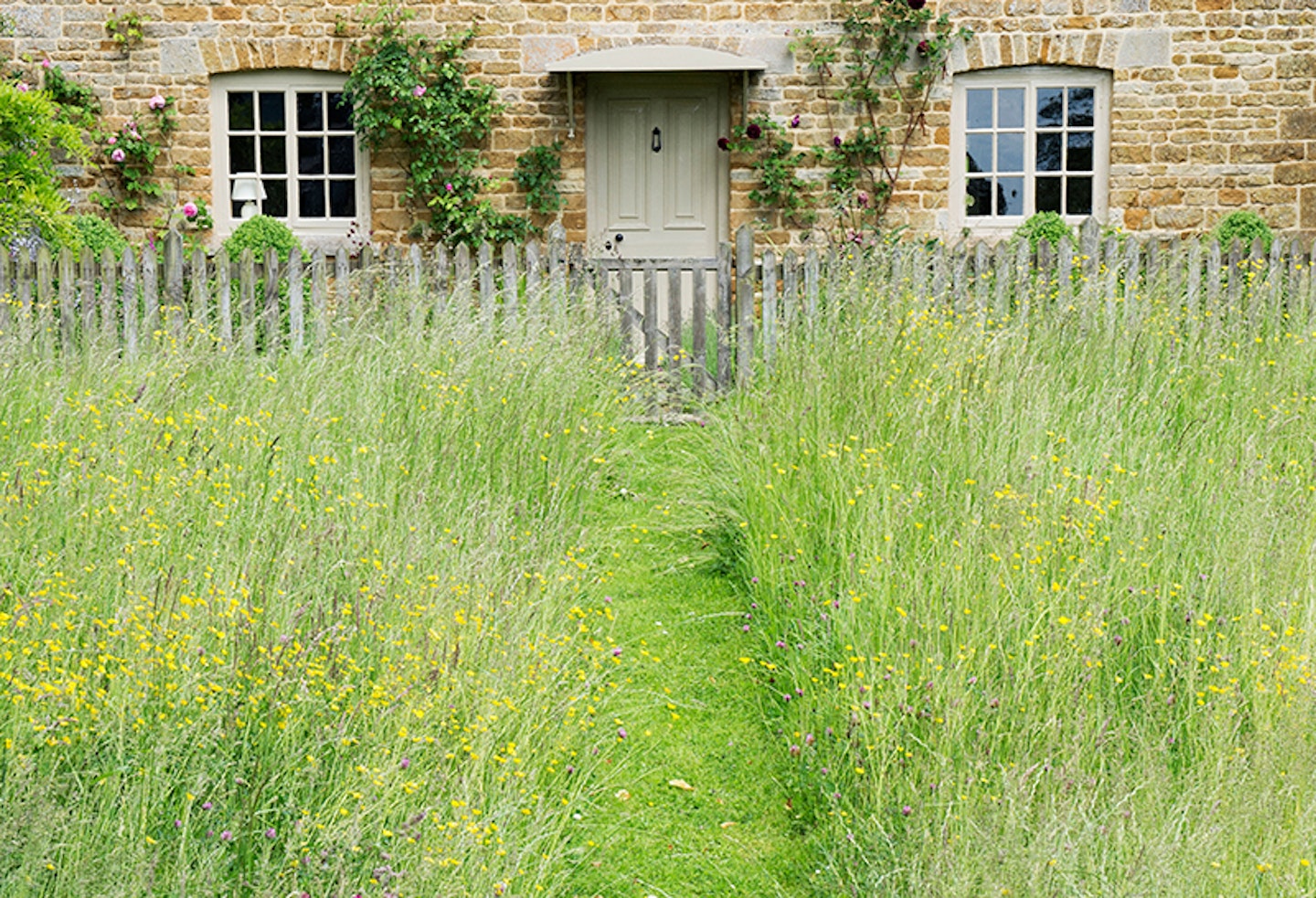
Look out for seed mixes which contain: Yarrow, Common Knapweed, Wild Carrot, Oxeye Daisy, Ribwort, Cowslip, Meadow Buttercup, Yellow Rattle, Common Sorrel, Salad Burnet, and Campion. These are recommended by the Royal Horticultural Society as they provide forage for a wide variety of pollinating insects and wildlife.
Here are some good examples of wildflower mixes that promote biodiversity:
Description
This packet contains everything you need to create a beautiful meadow. All the flowers conform to the RHS 'perfect for pollinators' guidelines. The mycorrhizal fungi helps the seeds establish root systems and promotes nutrient supply in the soil.
Description
Beebombs are helping to #bringthebeesback. No gardening required, Beebombs are handmade in Dorset, with sifted compost, natural local clay and their own wildflower seed mix. The compost helps germination and the clay protects and dissipates the seeds to create a wildflower meadow covering 21 square foot that will attract bees, butterflies and a range of other important insects and birds. Beebombs also come in sustainably produced jute bags u2013 so the packaging is environmentally friendly too!
Description
A mixed selection of seeds that can be scattered in your garden and produce some truly wonderful results. Extremely easy to grow, the mix of glorious colour and variety will enhance your garden and attract bees and insects.
Once you've sown your meadow flower seeds you can just leave it to its own devices. In no time you'll have a beautiful wild space, a haven for bees and butterflies and all kinds of other creatures. You could even stick up a bug hotel somewhere nearby your meadow to make them feel even more welcome.
Description
This is an insect house which suits all sorts of garden invertebrates from ladybirds and lacewings to bees and butterflies.
Promoting biodiversity in your garden also comes down to planting a selection of flowers in your garden, rather than a handful of species. Think variety, flowers that bloom at different times of the year, and will attract different bugs and wildlife.

